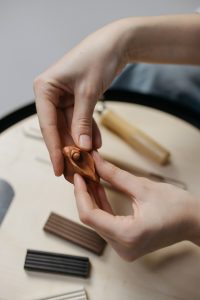Labiaplasty is a cosmetic surgery that addresses both aesthetic and medical problems, allowing women to improve both beauty and comfort. But before deciding if you should do it or not you must be aware of the potential labiaplasty surgery side effects.
To help you make an informed decision, this article will give you a comprehensive understanding of labiaplasty surgery and the potential risks involved with it.
You can also take a look at the post-operative recovery process to ensure that you’re prepared for this life-changing event.
Table of Contents
Labiaplasty overview
Labiaplasty is a surgical technique that includes reducing or altering the shape of your labia (inner folds of the vagina). Although it is usually believed that women prefer labiaplasty due to aesthetic reasons, but in reality there are various reasons.
Women, who feel self-conscious about the appearance of their genitalia, usually opt for labiaplasty to get a well-shaped vagina. Some women also seek out this option for medical reasons. Women who feel pain or discomfort in their genitals while performing physical activity undergo this operation.
While labiaplasty is safe to go through, it involves risks and problems. Hence, it is important for you to recognize the risk factors associated with labiaplasty if you’re considering a surgery.
What happens in labiaplasty?
Labiaplasty is a surgical treatment where you surgeon changes the size or shape of your labia. Now, labia can either refer to the vulva’s outer lips (labia majora) or its inner lips (labia minora).
Many women get this surgery to relieve physical pain, improve their cosmetic preferences, or rectify asymmetries. During a pre-operative consultation, your surgeon will inquire about your surgical aims and expectations.
Once everything is clear, your doctor will begin the surgical procedure. During the operation, your doctor removes excess tissue from the labia to obtain the desired size and shape.
There are various techniques to do this, such as trimming or reshaping the margins of your labia.
A labiaplasty operation is either done under general anesthesia or local anesthesia, depending upon of the complexity of your condition.
Recovery time line might differ, so it’s important to pay attention to your surgeon’s post-operative care recommendations. During the early phases of recuperation, swelling and pain are typical, but they usually go away with time.
Just like any other surgery, labiaplasty surgery side effects are quite common. These might include bleeding, infection, or even scarring. So, you must make a comprehensive discussion about such factors with an expert before going ahead with the operation.

Labiaplasty surgery side effects
Following a labiaplasty, you may experience physical discomfort in the operated region, including pain, swelling, bruising, and sensitivity. Let’s have a look at these side effects in detail to ensure you’re well informed in advance:
1. Pain and discomfort
You may discover that discomfort, swelling, and soreness in the surgically treated region are typical post labiaplasty operation. Fortunately, these are normal side effects of the healing process and usually go away in a few days to a week.
Your surgeon will give you prescription painkillers to aid you through this initial time of discomfort. You must adhere to your surgeon’s instructions and take the prescribed drugs to facilitate a more comfortable and seamless recovery.
Remember that this brief discomfort and pain is a typical aspect of the recovery process. With the right attention, you should be able to see noticeable improvement soon.
2. Swelling and bruising
Swelling and bruising come with labiaplasty. However, the severity of swelling and bruising around the operated region might differ from person to person.
Some women may experience little swelling or no bruise. While others might experience severe swelling around the region. Thankfully, these symptoms fade with time and coincide with the healing process rather than being permanent.
Although, at first bruising and swelling may be concerning, but there is no need to worry. These are only temporary side effects on your path to recovery.
3. Bleeding
Compared to other symptoms, bleeding is quite unusual in labiaplasty. If labiaplasty is carried while you’re awake, you might find it traumatic.
This may further increase the risk of blood pressure spikes and an accelerated heartbeat, which might lead to bleeding. To avoid this, doctors usually prefer general anesthesia during labiaplasty.
Fortunately, post-surgery bleeding is usually uncommon but if it does occur, you must take care. To avoid bleeding, it is recommended that you take a minimum of one week off from work after surgery.
Avoid physical activity for at least three to four weeks after the procedure.
4. Infection
As with any incisional surgery, there is a small chance of infection following labiaplasty. As a preventive step, your doctor might recommend you to take antibiotics to avoid any infection in the operated region. But you will have the option to choose.
Bacterial infections, for instance, are unusual after labiaplasty. In some cases, women who are susceptible to antibiotics might get bacterial infection. In that case, probiotics can help prevent yeast infections as a countermeasure to this.
5. Asymmetry
Understanding your body’s complexities is essential and it’s essential to remember that complete symmetry is a rare feat.
The primary goal of a labiaplasty is to achieve a balanced and visually pleasing outcome. But it is important to understand that complete symmetry might not always be possible.
It is quite natural to see little variations from side to side following this kind of precise surgery.

6. Scarring
Think about scarring as a possible concern because the labia may not recover exactly as planned. In that case, it might leave some visible scars on your skin. However, the severity of scars may differ.
Some may become less noticeable with time, while others might become more visible. To avoid scarring after the surgery, your doctor might recommend ointments.
7. Sensitivity
After labiaplasty, you may also experience changes in sensitivity around the treated region. This can in turn have an impact on your sexual life. You may either feel too sensitive or may not experience sensations at all.
What is the recovery time for labiaplasty?
The recovery time for labiaplasty surgery is an important thing to consider after the operation has been successfully completed. Though it varies from person to person, it is typically suggested to take roughly a week off from work following surgery.
After a labiaplasty, recovery should take six weeks. But it might take up to many months for your labia to fully recover from the swelling and regain feeling. During this period, you should refrain from physically demanding activities, engaging in sexual activity, and using tampons. To reduce the chance of infection and complications, you should closely adhere to your surgeon’s recommendations.
You may resume your sexual activity after 3-6 weeks, or when you’re fully ready. Remember that every person’s body heals differently. So listen to your body’s cues and carefully adhere to post-operative care recommendations by your doctor. This will help you recuperate from a labiaplasty with success and comfort.
Final thoughts
For many women, having a labiaplasty surgery may change their lives by reducing physical discomfort and enhancing their confidence. But before you decide, it’s important to know what possible complications the procedure can cause.
Some common labiaplasty surgery side effects may include swelling, pain, bleeding, scarring, infection, etc. That’s why speak with a certified surgeon who specializes in labiaplasty if you’re thinking about having this operation done.
Your surgeon will assist you in making an educated choice that is in line with your objectives and expectations. He/she will give you a thorough rundown of the advantages and hazards associated with labiaplasty. Lastly, keep in mind that every person’s experience with labiaplasty is different, and the first step to a good result is being knowledgeable and ready.
FAQs
1. Are there any usual adverse reactions from labiaplasty surgery?
Side effects are frequent following labiaplasty; however, they differ from person to person. Most of them are temporary and generally fade as the healing process advances.
2. What are the most common labiaplasty surgery side effects?
Pain, swelling, bruising, scarring, and changes in sensitivity are all common adverse effects. These often persist for a few days to a week, with total remission taking many weeks.
3. What precautions are done to avoid bleeding during or after labiaplasty?
Bleeding is rare, but it does happen. In order to reduce risk, patients may be provided prophylactic antibiotics and surgeons take measures during the surgery.
4. When is it safe to start having sex again after labiaplasty?
Usually, you can resume sexual activity 3-6 weeks after the operation, or whenever you feel comfortable and the swelling has gone down.

